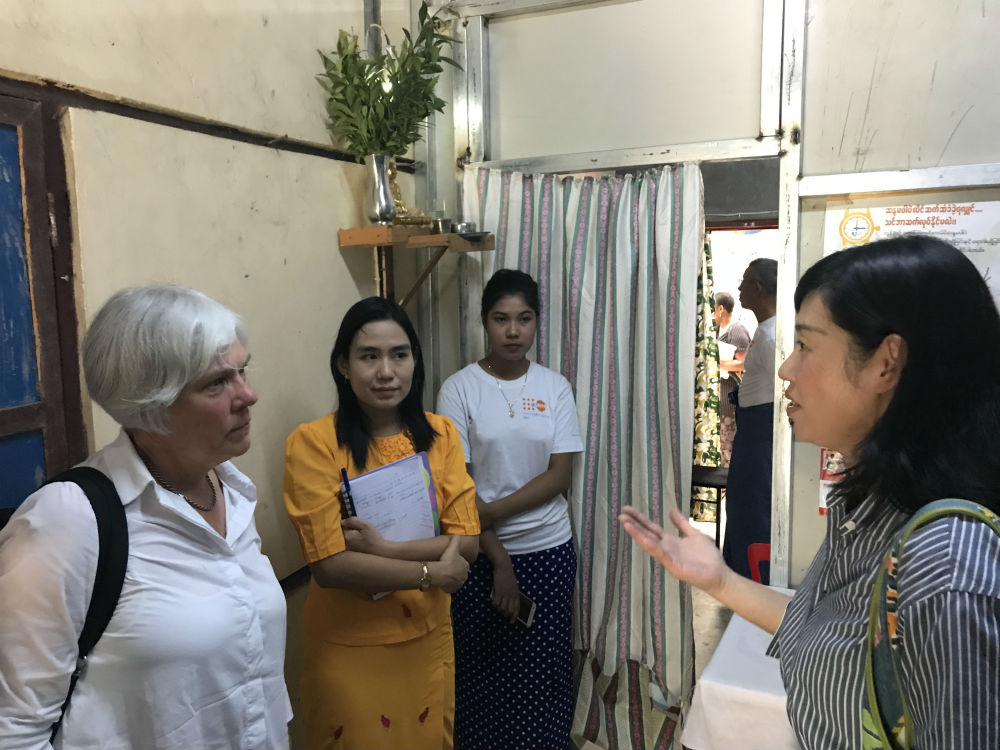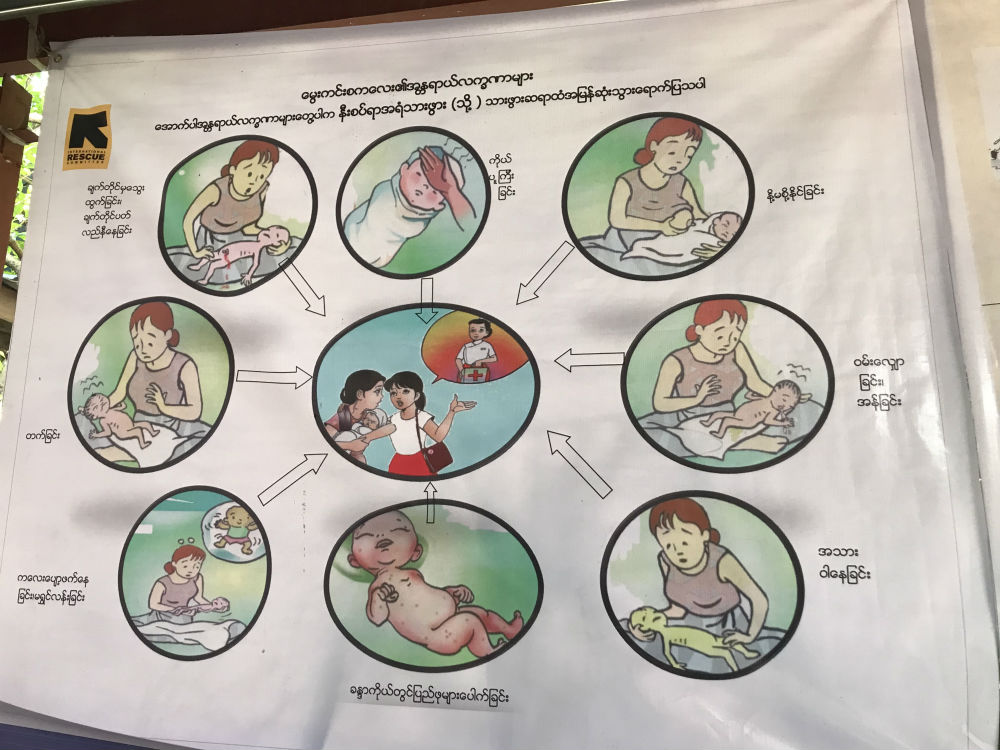Finland promotes women’s rights in Myanmar
Finland supports the Women and Girls First Initiative run by UNFPA (The United Nations Population Fund) in the conflict zones of Myanmar. The initiative brings together sexual and reproductive health and the related women’s rights, including the prevention of and response to gender-based violence.
The UNFPA Women and Girls First Initiative operates in six states in Myanmar: Rakhine, Kachin and Shan and the smaller southern states Kayin, Kayah and Mon. Representatives of the donor countries were welcomed last June to familiarise themselves with the practical operations of the initiative in Rakhine, from where more than 700 000 Rohingya refugees have fled to Bangladesh within one year.

Rakhine, a state riven by poverty and ethnic conflicts
Rakhine has 3.2 million inhabitants representing several ethnic groups. The largest ethnic group is the Rakhine people, who are Buddhist. Thirty per cent of the population are Muslims, who can be further divided into ethnic Kaman and non-Kaman Muslims. Myanmar acknowledges Kaman Muslims as Burmese citizens, but not the non-Kaman Muslims, the Rohingya, and considers them illegal immigrants.
The Government of Myanmar imposed travel restrictions on the Muslim population of Rakhine in 2012 following the eruption of ethnic conflicts between the Rakhine and Muslims. The events after last August have led to the mass exodus of the Rohingya as refugees to Bangladesh.
Rakhine is one of the poorest and most undeveloped states in Myanmar. It is estimated that 78 per cent of its population lives in poverty, while the national average is 38 per cent.
Maternal healthcare is of a poor standard in the area, which is riven by poverty and conflicts. The amount of pregnancy-related health services used is lower in Rakhine than in any other state in Myanmar. Fewer than one in five mothers give birth at a health centre or hospital.

The health centres suffer from a shortage of medicines: only one third of the clinics have access to vital medication necessary for maternity health care. Illegal abortions are the third most common cause of maternal mortality.
Rakhine has the highest incidence of domestic violence and the second-highest incidence of physical abuse and sexual violence compared to the rest of Myanmar. There is little awareness about these topics and women’s awareness of their rights is particularly poor.
Problems are caused by the lack of legislation on gender-based violence. The situation is made worse by the prevailing interpretation of the law, according to which care personnel are duty-bound to report to the police if a victim of rape is seeking treatment.
The operations are targeted at all groups
The conditions for development cooperation and delivering humanitarian aid in Rakhine are even more difficult than in most conflict zones.
The efforts of the UNFPAn Women and Girls First Initiative to support women and girls is critical given the challenging circumstances in the state. The initiative supports maternity clinic and mobile assistance teams who visit both Muslim and Rakhine villages.
The Women and Girls Centres give information about reproductive health, gender-based violence and the rights of the individual. The purpose is to make the Women and Girls Centres into safe spaces where women can come and attend education events, read books and learn sewing skills. Make-up and hair beauty courses give women and girls a great reason to come and visit the centre and receive peer support.
The operations also acknowledge boys and men, who can attend separate events on family planning, children’s rights and the role of men in the prevention of gender-based violence.
Many of the communities nurture fears against ethnic groups owing to a lack of communication. Rumours and prejudices only serve to exacerbate the situation. Some of the Women and Girls Centres have managed to bring Rakhine and Muslim women together. The women share a common interest in family planning, safe pregnancies and child-birth and women’s rights.
Finland supports the UNFPA Women and Girls First Initiative with EUR 3.65 million in 2016–2018. The initiative is also funded by Italy, Sweden and Australia as well as the United Nations Office for the Coordination of Humanitarian Affairs (OCHA). The initiative has been allocated both development cooperation funding and humanitarian aid.
Eeva Lehtinen
The author visited Rakhine last June to learn about the UNFPA Women and Girls First Initiative, which is funded by Finland. She serves as Programme Officer in the Department for the Americas and Asia of the Ministry for Foreign Affairs.

